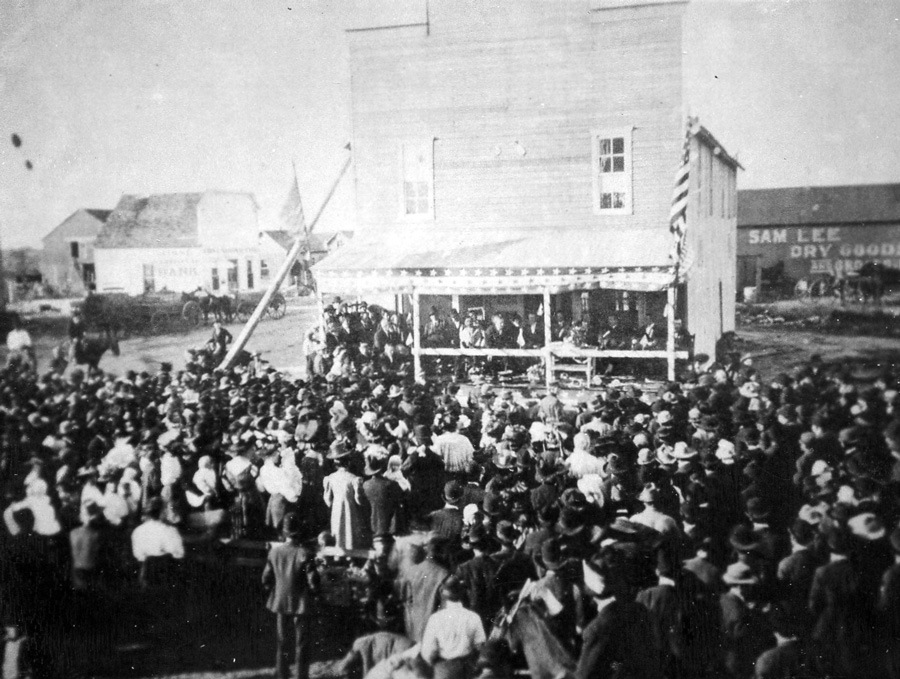STRATFORD.
The town of Stratford is situated at the intersection of U.S. Highway 177 and State Highway 19, seventeen miles northeast of Pauls Valley and eighteen miles west of Ada in northeastern Garvin County. Stratford was a thriving community of 1,474 people in 2000.
Stratford's history dates to the days of the Chickasaw Nation, Indian Territory. In spring 1906 the Oklahoma Central Railway (acquired by the Atchison, Topeka and Santa Fe Railway in 1914) bypassed the settlement of McGee, which had been established in 1891. McGee residents then moved their community two miles south to the railroad. Originally called Walling, the new town's name was changed to Stratford in October 1906.
By November 1906 Stratford had two banks, two lumberyards, three hotels, four restaurants, a cotton gin, and more than twelve stores. Efforts to incorporate began in January 1907. Early newspapers included the Stratford Chronicle, the Stratford Tribune, and the Stratford Leader. The town had 445 residents in 1907 and 685 in 1910. That number rose from 964 in 1920 to 1,065 in 1950, and continued to grow throughout the remainder of the twentieth century, reaching 1,278 in 1970, 1,404 in 1990, 1,474 in 2000, and 1,525 in 2010. The April 2020 census reported 1,402 residents.
Stratford's downtown architecture is of interest to tourists. Its First National Bank Building (NR 01000659) is listed in the National Register of Historic Places. Also noteworthy to visitors is the annual Stratford Peach Festival and Rodeo in July. Stratford is the self-proclaimed "Peach Capital of the World," and area peach orchards in 2000 totaled more than four hundred acres. The peach festival was first held in 1976, and the three-day rodeo debuted in 1936.
During the early twenty-first century the Hart Tackle Company, manufacturers of fishing equipment, and Hard Times Beef Jerky were major Stratford employers. The town then had eight churches and a public library, and the local school district had an enrollment of 587 students. Stratford citizens support the Stratford Star newspaper, the Stratford Chamber of Commerce, the American Legion, and other active civic groups.
See Also
Learn More
Chickasaw News (McGee, Indian Territory), 31 May, 20 September, 11 October, and 1 November 1906.
Charles W. Mooney, "Ghost Town: McGee, Indian Territory," The Chronicles of Oklahoma 47 (Summer 1969).
"Stratford," Vertical File, Research Division, Oklahoma Historical Society, Oklahoma City.
Related Resources
Citation
The following (as per The Chicago Manual of Style, 17th edition) is the preferred citation for articles:
Richard Duane Robinson, “Stratford,” The Encyclopedia of Oklahoma History and Culture, https://www.okhistory.org/publications/enc/entry?entry=ST045.
Published January 15, 2010
Last updated March 29, 2024
© Oklahoma Historical Society


